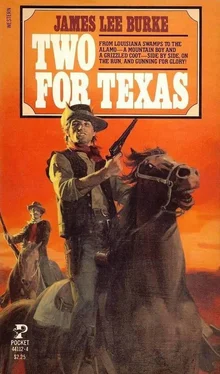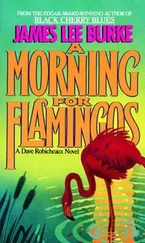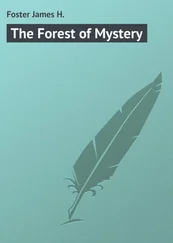James Lee Burke
Two For Texas
The first day that Son Holland arrived in the penal camp, manacled inside a mule-drawn wagon with seven other convicts, he knew that he would eventually escape, that he would die before he would spend ten years in a steaming swamp under the guns and horse quirts of malarial Frenchmen with Negro blood in their veins and a degenerate corruption in their hearts. But he was just barely nineteen then, still sufficiently naive to believe that his will alone was enough to win his freedom. He didn’t know that almost two years would pass before his escape would come almost by accident, and that he would have to help murder a man to accomplish it.
The penal camp was built on a mudflat of the Mississippi River, where it made a wide bend north of Baton Rouge, and at sunset, while he stood exhausted and silent in front of his pen, waiting for the long chain to be slipped free from the iron ring manacled to one ankle, he looked out over the miles of swampland that one day he would have to cross to reach the Sabine River and Texas. White cranes flew low over the dead cypress tops in the sun’s afterglow, their wings covered with scarlet, and the willow trees along the banks seemed wilted in the damp heat; just as the pen door was bolted and locked behind him and he lay down on the wood plank in the collective smell of himself and the other convicts, he saw the mosquitoes begin to lift in gray clouds out of the cattails.
Sleep came to him only in the late hours of the night, because the men who were to be whipped for breaking a rule during the day were always taken from the pens after the guards had eaten supper and started in on the barrel of whiskey they kept locked up with the axes and saws. So a man never knew until very late whether he would be called out from the pen, told to pull his cotton breeches over his buttocks and kneel across a log, like a child saying his prayers, and be whipped until he cried and the urine ran down his thighs.
Also, there were the sounds of the convicts in the maisons de chiens, the dog houses, a row of wooden boxes where the bad ones were locked in with a hole the size of a cigar for air. There wasn’t enough room for a man to sit upright, and after a day his body felt as though he had been turned on a medieval rack; a second day reduced him to a pleading thing that whimpered inside the wooden frame of his agony, while the lines of men clanked past him on their long chain into the marsh. If he was left in there three days, he usually had to be dragged from the box like a dog that had been crushed across the rib cage by a wagon wheel. He would lie in the dirt, his head touching his knees in an embryonic position, his eyes blind to the white sun, his lips caked with his own salt and his eyes absolutely mad.
Son Holland experimented with different ways of getting into sleep, of sinking down past the suck of air behind the horse quirt and the fingernails scratching inside the dog houses. Sometimes he thought about women, but more often in the hot darkness he thought about his home in the Cumberland Mountains of eastern Tennessee. In the center of his mind he could see the dark green of the mountain crests rising out of the morning mist, and as the sun grew hotter and burned away the fog from the river, he saw the dogwood in bloom against the hillsides and the rolling stands of maple and beech trees and yellow birches. But if he dwelt too long upon that vision he would remember the burned cabin and finding his mother and father in the horse lot after the hogs had gotten to them. The high sheriff said it was done by drunk Shawnees, because only a drunk Indian killed like that and did those kinds of things to a man before he died.
Then there was the long ride on the swaybacked chestnut to Memphis, where he sold it for the passage down the Mississippi to New Orleans, that leftover piece of Europe where men who couldn’t even speak English made fortunes in the cotton exchange. Then he would feel an anger and shame at his stupidity in thinking that he would be considered anything more as a mountain person than the poor white trash that filtered into the city from the Mississippi River bottoms.
When he entered a public house to eat and was told to go around to the side door by a Negro servant, he backed out into the cobbled street unable to speak and was almost run down by a carriage. He learned quickly that there were only certain places where he entered the front door, and the men seated at the tables were a foul lot who slurped at their tankards of wine and smelled of cured alligator hides and the stagnant water of the marshes. Their skin was discolored a pale greenish cast, because they lived along the bayous or came out only at night to rob from the flatboats on the river, and they all carried razor blades or knives in their beaded moccasin leggings.
He was sleeping on a pallet among the same type of men behind the slave quarters, when he was arrested and put into manacles by two city constables.
Neither of them spoke English, and when he backed away, protesting, “What for? What for? I ain’t done nothing,” they pressed his hands together, almost gently, and locked the manacles on his wrists. He felt the chain come tight between his clenched fists. A rage swelled in his chest and he swung the loop of chain into a constable’s face.
“Don’t fight back with them Frenchies, boy,” a man on the ground said. “They’ll salt your hide when they get you in jail.”
The second constable hit him across the ear with his pistol barrel; Son heard the blood roar in his head and he tipped sideways on one foot as though his body were made of wood. He got to his hands and knees, his ear burning, and saw the mud-flecked boot flick out toward his face; then he knew that pain was only a brief thing, a tearing along the jawbone someplace, a glass splinter in the softness of the brain, and finally just a rolling over like a lover into the arms of one’s tormentor.
He awoke on the floor of the jail wagon on the way to the city prison, and the constable who had kicked him was sitting on the wooden bench next to the barred door, his small face an indifferent white oval in the moonlight. Son could feel the metal-banded wheels vibrate on the cobbles through the floor of the wagon.
“What for?” he said. The inside of his jaw felt swollen against his teeth, and he wiped a clot of blood off his bottom lip.
The constable crossed his leg on his knees and looked out through the barred door.
“What for, you shithog? I ain’t done nothing except sleep in the same place as them pirates down there. I don’t have nothing to do with where they go at night.”
The constable made a motion with his two fingers, as though he were snipping at something with a pair of scissors.
“That don’t make no sense.”
The constable wet his lips and hummed a sound in his throat, then clipped at the air again and said, in his bad accent, “Cutpurse.”
“What?” The word was unbelievable to him, something apart and away from him.
“Cutpurse.”
“You’re a liar,” he said, and looked up from the floor and felt his heart beating.
“Cutpurse ain’t nothing,” Hugh Allison said from the bunk next to Son. “That’s no bad mark against a man. I was up in front of the same judge three times for the same thing. The only reason he give you them ten years was because you stole it from a quadroon woman that belonged to a gentleman. That’s the way the law works with these Frenchies.”
I didn’t steal it. She lied in the court, with her hand on the Bible, in front of God and all them people, and she looked straight at my face when she lied.
The false dawn had just started to spread in a low gray band across the horizon, dimly outlining the mudflats and the moss in the cypress trees and oaks on the far side of the Mississippi’s dark expanse. It was still cool, with a fresh breeze off the water, and mockingbirds swept low over the willows and cattails after insects. Somewhere back in the sandy bottoms of the marsh Son heard a bull alligator roaring for its mate.
Читать дальше












